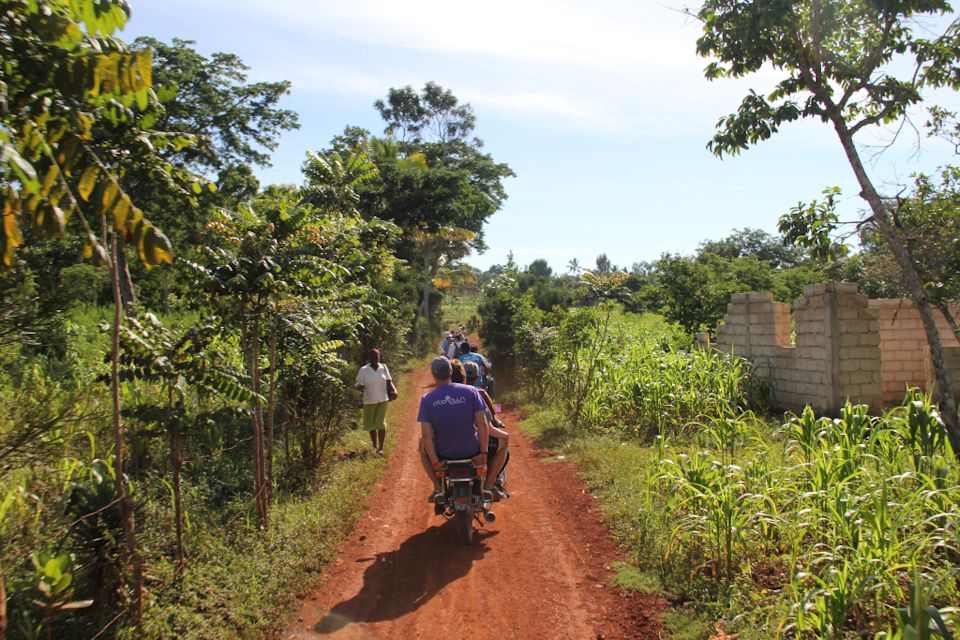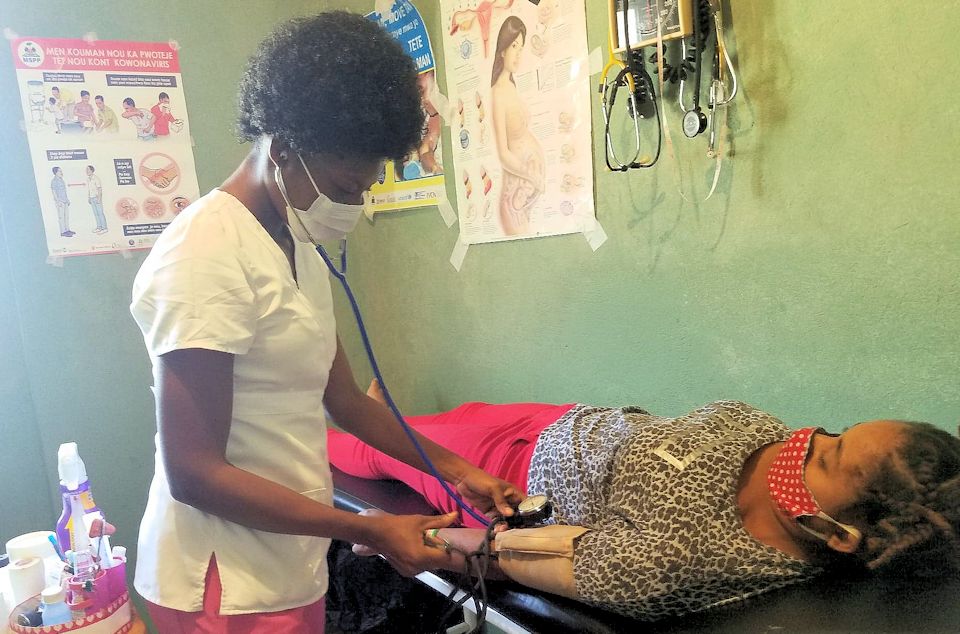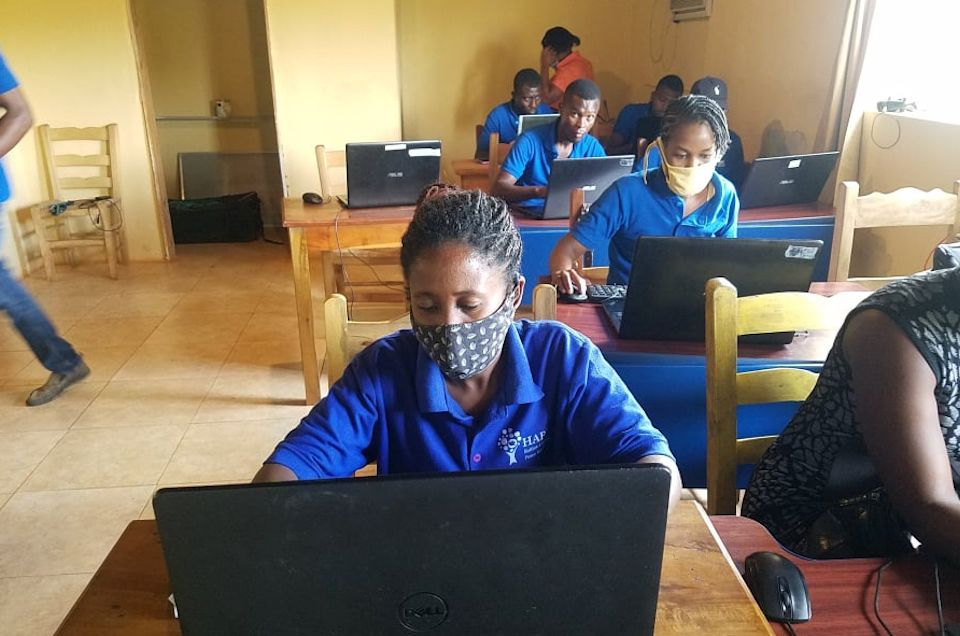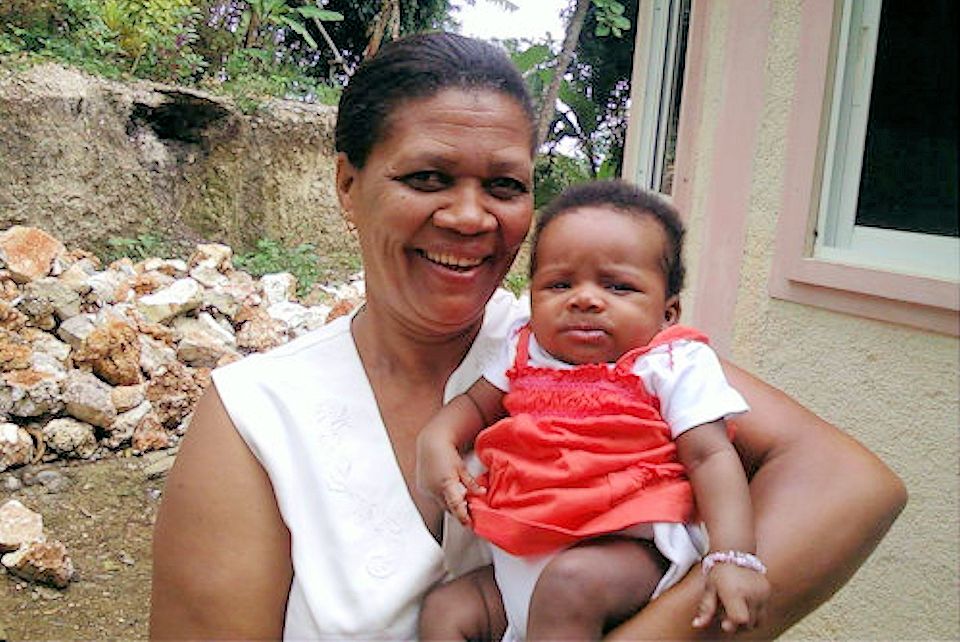HAPI, “the little engine that could,” has risen above a fire, gang violence, and national unrest to create a peaceful community in Haiti, providing health and education for all.
KAY DEMOSS
Senior Content Editor
It has been a momentous year for Haitian Assets for Peace International. On July 6, 2021, HAPI’s safe storage fire destroyed computer hardware and cash reserves. The next day, July 7, Haiti’s president was assassinated, plunging the country into a season of political uncertainty and gang violence that continues today. Then on August 14, an earthquake shook the island, and Tropical Storm Grace dumped 10 inches of rain on Haiti just two days later. Mizak, the mountaintop home of HAPI, did not receive significant damage from the tremors, but their ministry has been affected by the increased instability across the nation.
Generous contributions from The Michigan Conference helped with recovery from the fire. In addition, UMCOR gave a grant for equipment and facility maintenance.
Valerie Mossman Celestin, U.S. Executive Director of HAPI, is grateful for the generosity of these and other HAPI friends. She says, “HAPI’s equipment, cash, and facilities fully recovered from the fire last July. We even had a small overage that we applied to Start Right maternity classes and salaries of our obstetric nursing staff.”
Barriers to ministry
Gang activity has hampered HAPI’s ability to transport items needed for their clinic and vocational classes securely. Haitians fear the “men with big guns,” who control the road, demanding “toll.” Rival gangs sometimes engage in shoot-outs for control of roads. Celestin reports, “Currently, we have two hospital beds, laboratory equipment, fire extinguishers, infant and adult scales — bought and paid for by a grant from United Methodist Global Health — sitting at a medical supply company in Port-au-Prince. The lab equipment will enable us to provide new services at the clinic, and the beds and extinguishers are necessary for compliance in the registration process with the Department of Health in Haiti.” It is too risky to try to bring these items through the gang-patrolled corridor between the capital city and Mizak.

She adds, “When the gangs disrupt the diesel and gas supply, it becomes too costly or even impossible for clients who live at a distance to reach us. The same is true for our vocational teachers who live in the city of Jacmel. In the bigger picture, 70% of the physicians and anesthesiologists of Haiti reside in Port-au-Prince and do weekly rotations to outlying hospitals.” So, when travel is dangerous, these professionals are not available to perform surgeries such as c-sections.
Conditions in the nation have placed a financial burden on HAPI staff. Celestin explains, “The banks are impacted because the amount of U.S. currency is now scarce. This pushes the value of the U.S. dollar higher and the Haitian gourde lower.” HAPI employees are contracted in U.S. dollars to increase their purchasing power. However, “Payroll can take months to be released by the bank,” Celestin says. “Yet our staff continue to show up and serve their community.”
The vision continues
HAPI’s vision, ultimately, is for a peaceful, prosperous, and self-sustaining community with opportunities for fair wage jobs, health, and education available to all persons. Celestin notes, “We are grateful that Mizak has remained free from the violence plaguing more urban areas. However, the grip of violence on the nation works against commerce and entrepreneurism that would lead to greater economic independence and development of the services people desire.”
Across the country, advancements in health care, food security, and higher education are currently at a standstill. “This dims the hopes and dreams of the youth for a better future,” Celestin observes. “Violence encourages immigration out of Haiti, especially the young and better-educated. And why do gangs proliferate? Generational poverty.” Still, HAPI persists in the goal to provide fair-wage jobs in the battle to eradicate poverty and save lives.
HAPI is no longer able to welcome international volunteers to serve in Mizak because of the turmoil in Haiti. “This is a tremendous loss,” Celestin shares. “When teams visit, our goal is to inspire, educate and relate and send off ‘ambassadors’ who will tell our story and invite others to join with and fulfill their own passion and gifts with HAPI’s.” She hopes that this type of “synergistic growth” that has “kept the lights on” at HAPI will resume in the future.
Money from Michigan
The traditional Ingathering at the 2022 Michigan Annual Conference will again be divided between Michigan’s covenant partners in Haiti and Liberia.
The Haiti portion of the offering will support Start Right, HAPI’s maternal and newborn care initiative. Start Right accompanies an expectant mom from the pregnancy test through educational classes, health exams, lab testing, and delivery through childhood immunizations.

Celestin speaks to the growing need. “In 2021, we had 353 moms enroll, a 20% increase above 2020, and we anticipate similar growth rates for 2022-2023.” In Haiti, a rural woman averages one prenatal visit per pregnancy. Further, 75% of Haitian women deliver their infants at home. HAPI defies those averages. Celestin says, “HAPI moms average six prenatal visits including education on recognizing the danger signs in pregnancy, labor and delivery, nutrition, breastfeeding, and newborn care.” In addition, 62% of women choose the delivery room at the Felisane Center, and an additional 15% are referred to the hospital for c-sections. While a quarter of Haitian newborns are low-birth-weight, at HAPI, it is under 5%.
“HAPI is not only reducing the mortality rate for women and infants,” Celestin remarks, “but we are also ensuring that life STARTS RIGHT!” She credits the excellent care given by HAPI health professionals. Unlike other grants underwriting equipment and supplies, the Michigan offering will provide salary support for nurses, the doctor, and related program staff.
Future dreams
Start Right is only one of the many Haitian Assets for Peace International programs. A new relationship between HAPI and United Methodist Global Heath will strengthen their health system and programs. Celestin says, “We received a $10,000 grant this spring to improve our facility and purchase equipment.” HAPI has also applied for a second grant of $100,000 that includes adding ultrasound and EKG equipment, pharmaceuticals and supplies, new laundry space, and more.
A new collaboration with a cardiologist, Dr. Gedeon Gelen, a graduate of Sorbonne University in Paris residing in Port-au-Prince, will expand HAPI’s capacity with ultrasound and EKG. Hypertension is the leading cause of maternal death in Haiti, and strokes are rampant. The EKG equipment is part of a broader initiative to confront hypertension and diagnose and prevent cardiac disease.

HAPI’s clinic is currently open for urgent care eight hours a day, serving about 500 people a month. However, the community has requested 24/7 access to care. As a result, a second floor will be added to the facility to provide around-the-clock care, providing rooms for two medical residents to be on-site for evening urgent care. Celestin and a visioning team planned to visit Haiti in 2022 to meet with staff, a public health representative, and an engineer to create a design and budget. Unfortunately, travel restrictions may force a virtual process.
Another dream involves HAPITech, the vocational program in Mizak. Female enrollment currently stands at 30% because most courses attract young men. Celestin expresses a hope to grow female enrollment to 50% by developing a six-course business certification program. “The challenge,” she says, “is that our internet is insufficient for online learning, and we need affordable and quality instruction on a mountain in rural Haiti!”
Yes, HAPI faces many challenges. But, as Valerie Mossman Celestin asserts, “We have proven to be ‘the little engine that could!'”
~ Haitian Assets for Peace is an Advance Special of The United Methodist Church and an EngageMI Ministry Partner of The Michigan Conference.
Last Updated on September 20, 2022

